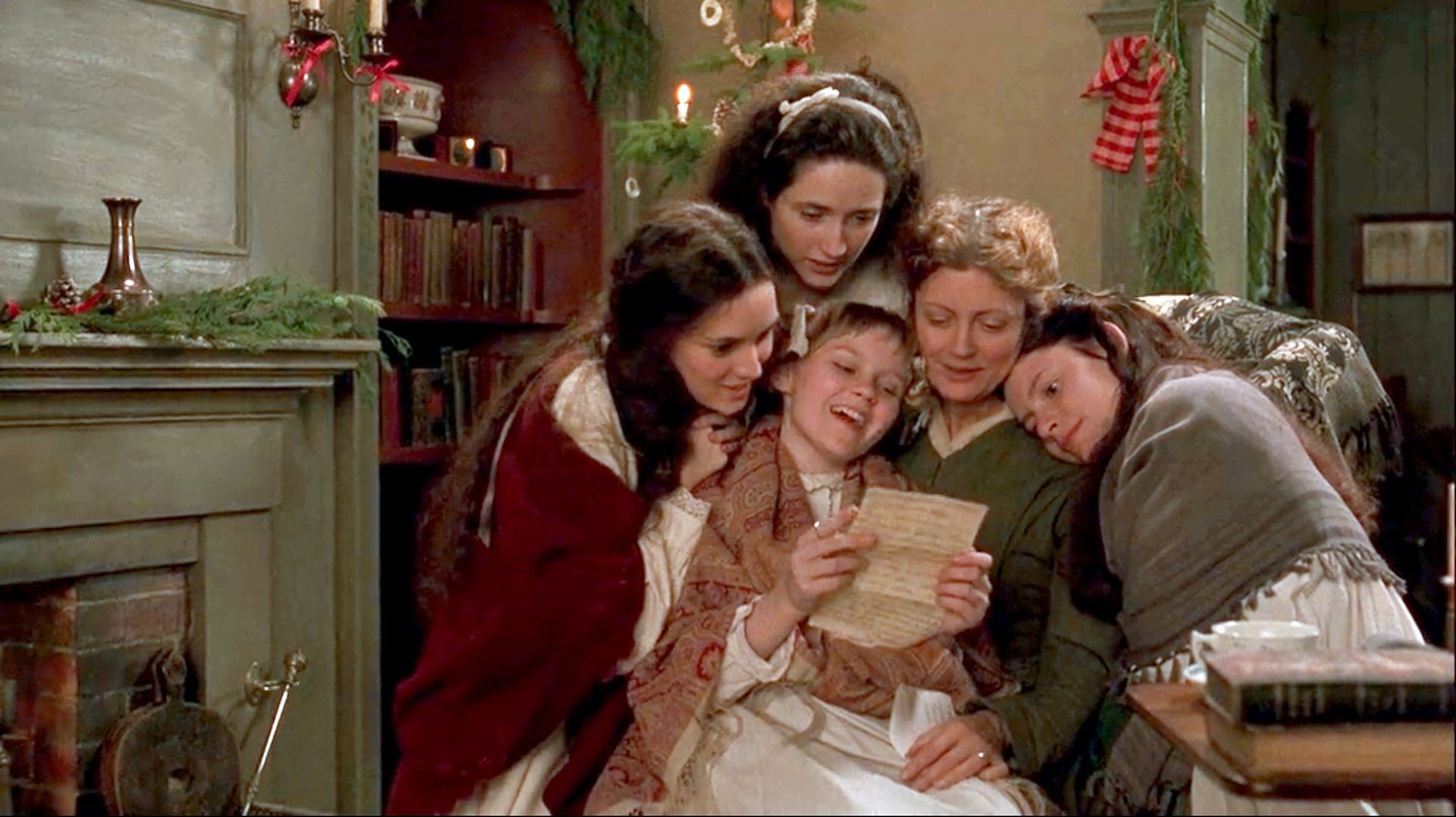Timeless, Rich, Revelatory: Gillian Armstrong's Little Women at 30
The Third Wave Riot grrrl feminism of the 1990s proved fertile ground for a new film adaptation of Louisa May Alcott's beloved novel Little Women, about the March family coming of age during and after the American Civil War.
Penned by Robin Swicord, produced by Denise Di Novi, and directed by Gillian Armstrong, this adaptation brought the material back to the staunch feminism of Alcott's fiery pages, though it left behind some of her outdated moralizing. An Oscar-nominated Winona Ryder as would-be writer Josephine "Jo" March leads a stacked cast that also includes Trini Alvarado, Samantha Mathis, Kirsten Dunst, Claire Danes, Gabriel Byrne, Christian Bale, Eric Stoltz, Mary Wickes, and Susan Sarandon, all of whom bring both nuance and star power to their iconic roles. The sweeping beauty of Thomas Newman’s Oscar-nominated score wraps the whole thing up in a warm, tender musical embrace.
More than a decade before the film's premiere, director Armstrong made history in her native Australia with My Brilliant Career — the first film in the country directed by a woman since the independently produced films made by the Dolly Sisters in the 1910s. Instantly a feminist classic, that film starred Judy Davis as a similarly free-spirited young woman growing up in the Australian bush in the 1890s and dreaming of a career, not marriage. When the producers of Little Women first approached Armstrong to direct their project, she balked at the prospect, considering the subject matter too similar to that of her earlier film. Thankfully, after several further meetings, Armstrong realized the similarity between the two films was minor, and that a new generation of young people could benefit from an adaptation of Alcott’s novel rooted in female independence. Armstrong brought to the project her signature sumptuous visuals and a strong, clear vision for the film's progressive feminism.
Ryder is a revelation as Jo March. A perfect distillation of the impish, alt-girl persona she had crafted during the early years of her career, her Jo, as she describes herself, is “fitful” and knows she’ll “never fit in anywhere.” She has fits of rage and bouts of melancholy. Sometimes, she's incredibly selfish, other times impossibly selfless. But she's always true to herself, never wavering from her ethics, her goals, and eventually her empathetic vision for the world. She’s a modern woman ahead of her time, and Ryder captures her spark with a breezy ease, tempered with just the right amount of punk-infused frisson.
Many fans of the story have debated for years whether Jo should end up with Professor Bhaer or Laurie, and while Armstrong’s film does end on a romantic note, marriage is not the sole goal set out for our heroine. The feisty second daughter of the March family spends most of her time either reading to her crabby Aunt March, tutoring her younger sister Amy, or practicing the craft of writing.
While her life is peppered with the triumphs and sadness that comes with romantic and filial love, it is her singular pursuit of a career as a writer that gives her an avenue to grow and learn through those very human experiences, finding strength in the courage it takes to write of human truths rather than childhood fantasies. Ultimately, Jo is granted a full life, one that has room for her family, her lover, and her professional passion. We should all be so lucky.
I first saw this film with my mother during its original theatrical run. I fell in love with the world of this movie. With its complex women, unafraid to pursue their passions or share their opinions; and with its men, who respected and loved the women for their intelligence and independent spirits. I have often said I would not be the woman I am now if not for Ryder's Jo and the path she showed was a possibility for a bookish, tempestuous girl like me. The film was an instant favorite, and has remained my favorite movie for these past thirty years. I suspect it was a foundational text for many other moviegoers of my generation, as well.
Having loved this film for decades, its timelessness remains magical, and its richness rewards multiple rewatches, but I know Armstrong’s Little Women is also ripe to be discovered by new audiences. I envy everyone who will be seeing this gem for the first time.
———
Marya E. Gates is a programmer and social media manager for the CCFF, and is a member of the Chicago Film Critics Association. A freelance film writer, her bylines include RogerEbert.com where she has a monthly interview column called Female Filmmakers In Focus. She interviewed director Gillian Armstrong for her forth-coming book "Cinema Her Way: Visionary Female Directors In Their Own Words," set for publication in 2025 by Rizzoli International Publications.
